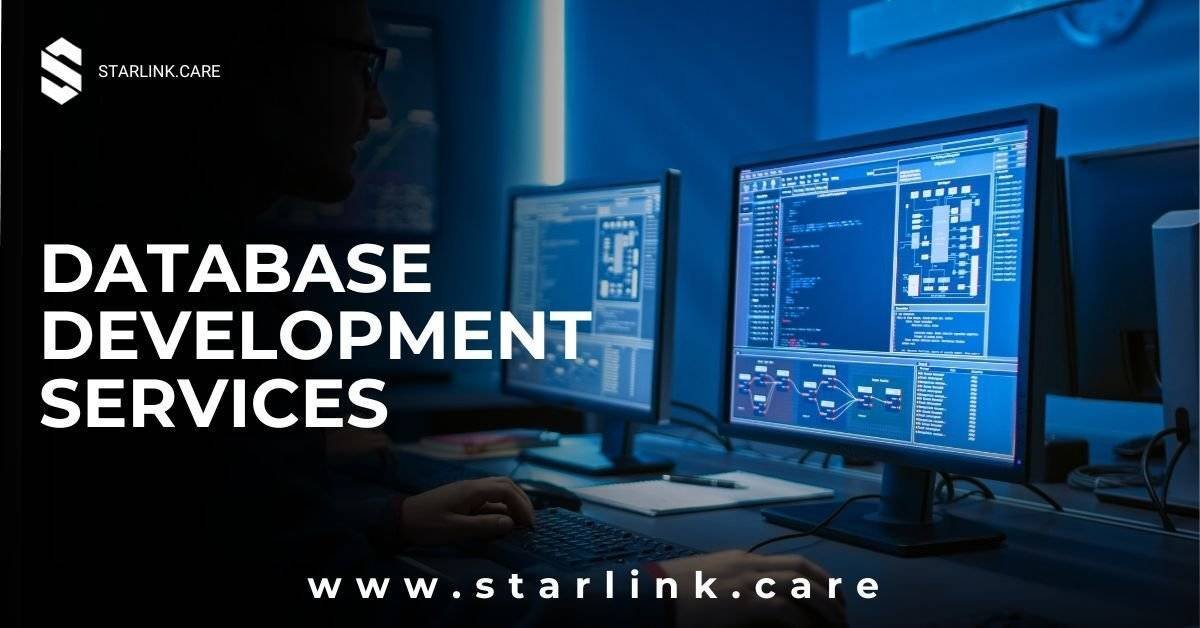The Ultimate Guide to Database Development Services
In today’s digital world, managing data efficiently is more crucial than ever. Database development services are at the heart of this task, ensuring that data is stored, retrieved, and utilized effectively. Whether you’re running a small business or managing a large enterprise, understanding database development can help you make informed decisions and leverage your data for success. This article will break down what database development services are, why they matter, and how you can benefit from them.
What Are Database Development Services?
Database development services involve creating and managing databases that store, organize, and manage data for various applications. This can include designing the database structure, implementing the database, and maintaining it to ensure it operates smoothly. Essentially, these services help businesses keep their data in order so it can be easily accessed and used when needed.
Why Are Database Development Services Important?
Imagine a small bookstore that suddenly starts growing rapidly. Without a well-organized database, keeping track of inventory, sales, and customer information can become chaotic. A well-developed database ensures that all this information is structured and accessible, making it easier to manage operations and make data-driven decisions.
Here are some key reasons why database development services are vital:
- Efficient Data Management: Proper database design allows for quick and easy access to data, which is essential for making informed business decisions.
- Data Integrity: A well-structured database ensures that data is accurate and consistent, reducing the risk of errors.
- Scalability: As your business grows, your database can be scaled to handle more data and more complex queries.
- Security: Database development services include implementing security measures to protect sensitive information from unauthorized access.
How to Choose the Right Database Development Services
Choosing the right database development services can make or break your data management strategy. Here’s a step-by-step guide to help you make the right choice:
Step 1: Assess Your Needs
Before you start looking for database development services, it’s crucial to understand your needs. Are you looking for a new database solution, or do you need to improve an existing one? Consider the following:
- Type of Data: What kind of data will you be storing (e.g., customer information, sales data, inventory)?
- Volume of Data: How much data do you expect to handle now and in the future?
- Access Requirements: Who needs to access the data and how frequently?
Step 2: Research Potential Providers
Once you know what you need, start researching potential database development service providers. Look for companies or freelancers with a proven track record in:
- Database Design: They should have experience in designing databases that fit your specific requirements.
- Database Management Systems (DBMS): Familiarity with popular DBMS like MySQL, PostgreSQL, or Microsoft SQL Server is important.
- Security Practices: Ensure they follow best practices for database security to protect your data.
Step 3: Evaluate Their Expertise
Assess the expertise of potential providers by:
- Reviewing Portfolios: Look at their previous work to see if they have handled similar projects.
- Checking References: Contact previous clients to get feedback on their experience.
- Discussing Technical Skills: Ensure they are proficient in the technologies and methodologies relevant to your needs.
Step 4: Discuss Project Details
Once you’ve shortlisted a few candidates, discuss the specifics of your project:
- Scope of Work: Define what exactly you need, including design, implementation, and maintenance.
- Timeline: Agree on realistic deadlines for each phase of the project.
- Cost: Get a clear understanding of the costs involved, including any ongoing maintenance fees.
- Communication: Establish how you will communicate throughout the project to ensure everything stays on track.
Step 5: Start with a Pilot Project
Before committing to a large-scale project, consider starting with a smaller pilot project. This allows you to test the waters and ensure the provider meets your expectations.
Best Practices for Working with Database Developers
To ensure a smooth and successful project, follow these best practices:
Clear Communication
Maintain open and clear communication with your database developers. Use tools like Slack or Microsoft Teams for regular updates and discussions. Clear communication helps prevent misunderstandings and ensures that the project aligns with your goals.
Provide Detailed Requirements
Give detailed briefs and requirements to your developers. The more specific you are about what you need, the better the final product will be. Include any relevant documentation, such as data models or existing databases.
Regular Updates and Reviews
Set up regular check-ins to review progress and make any necessary adjustments. This helps ensure that the project is on track and meets your standards.
Be Open to Expert Advice
Database developers bring valuable expertise and insights. Be open to their suggestions and recommendations, as they might offer improvements or solutions you hadn’t considered.
Real-World Example: A Success Story
Let’s consider the example of GreenTech Solutions, a company specializing in eco-friendly products. GreenTech was struggling with managing its product inventory and sales data. They decided to invest in database development services to streamline their operations.
By working with a skilled database development team, GreenTech implemented a custom database solution that integrated with their existing systems. The new database allowed them to track inventory in real-time, generate detailed sales reports, and analyze customer data effectively. This not only improved their operational efficiency but also provided valuable insights that helped them make strategic business decisions.
Conclusion
Database development services are essential for any business that relies on data to drive its operations. Whether you need a new database system or want to improve an existing one, choosing the right service provider and following best practices can help you manage your data effectively and securely.
If you’re considering investing in database development services, take the time to assess your needs, research potential providers, and communicate clearly throughout the project. With the right approach, you can leverage your data to enhance your business operations and drive growth.
For more information on database technologies and best practices, check out resources like Starlink.care, Database Journal and TechTarget’s SearchDatabase. These sites offer valuable insights and tutorials to deepen your understanding of database development.







